 Like the agonizing lament of a bereaved widow at a Bedouin funeral, like the piercing shriek of a peasant woman as her village is burned to the ground in some terrible holocaust ignored by the world, like the confrontational screech of a decadent French poetess-provocateur, like the guttural schrei of a German expressionist diva, or a stricken plague victim coughing up her last mouthful of blood and lymph, Diamanda Gal?' vocal ululations pierce straight to the heart, unearthing a swell of deadly inhumanity that bubbles up from our collective unconscious memory of the brutal atrocities of history.
Like the agonizing lament of a bereaved widow at a Bedouin funeral, like the piercing shriek of a peasant woman as her village is burned to the ground in some terrible holocaust ignored by the world, like the confrontational screech of a decadent French poetess-provocateur, like the guttural schrei of a German expressionist diva, or a stricken plague victim coughing up her last mouthful of blood and lymph, Diamanda Gal?' vocal ululations pierce straight to the heart, unearthing a swell of deadly inhumanity that bubbles up from our collective unconscious memory of the brutal atrocities of history. Like the agonizing lament of a bereaved widow at a Bedouin funeral, like the piercing shriek of a peasant woman as her village is burned to the ground in some terrible holocaust ignored by the world, like the confrontational screech of a decadent French poetess-provocateur, like the guttural schrei of a German expressionist diva, or a stricken plague victim coughing up her last mouthful of blood and lymph, Diamanda Gal?' vocal ululations pierce straight to the heart, unearthing a swell of deadly inhumanity that bubbles up from our collective unconscious memory of the brutal atrocities of history.
Like the agonizing lament of a bereaved widow at a Bedouin funeral, like the piercing shriek of a peasant woman as her village is burned to the ground in some terrible holocaust ignored by the world, like the confrontational screech of a decadent French poetess-provocateur, like the guttural schrei of a German expressionist diva, or a stricken plague victim coughing up her last mouthful of blood and lymph, Diamanda Gal?' vocal ululations pierce straight to the heart, unearthing a swell of deadly inhumanity that bubbles up from our collective unconscious memory of the brutal atrocities of history.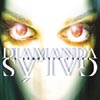 I couldn't imagine a more welcome gift this winter holiday season than two brand-new double albums from Diamanda Galàs. La Serpenta Canta is a live song recital, containing new performances of many favorite songs from her back catalog, her set drawing freely from blues, country, and Motown soul. The idea of a singer as possessed and theatrical as Diamanda Galàs covering American popular song may seem a novelty on the surface, but La Serpenta Canta has quickly become my favorite album by the Greek-American diva.
I couldn't imagine a more welcome gift this winter holiday season than two brand-new double albums from Diamanda Galàs. La Serpenta Canta is a live song recital, containing new performances of many favorite songs from her back catalog, her set drawing freely from blues, country, and Motown soul. The idea of a singer as possessed and theatrical as Diamanda Galàs covering American popular song may seem a novelty on the surface, but La Serpenta Canta has quickly become my favorite album by the Greek-American diva.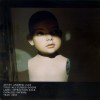 The art of the sound collage and drone music has a group of key members. Mirror, Christoph Heemann, Andrew Chalk, William Basinski, and perhaps just a few more are known and loved and create music that invokes images from other worlds; be those images frightening, sublime, or esoteric, it is impossible to deny their visceral impact. Andrew Liles has been added to that list of elusive and wonderful musicians with this release.
The art of the sound collage and drone music has a group of key members. Mirror, Christoph Heemann, Andrew Chalk, William Basinski, and perhaps just a few more are known and loved and create music that invokes images from other worlds; be those images frightening, sublime, or esoteric, it is impossible to deny their visceral impact. Andrew Liles has been added to that list of elusive and wonderful musicians with this release.
 310 are back with a new album for Leaf that sees them taking a turn that may leave fans of their previous work out in the cold. It's always good to see artists making strides and tackling new challenges with their work, even when they are primarily working from a relatively accessible base as 310 are. However, 310's new direction seems to be one aimed at a larger audience, and as such suffers from an awkward directness.
310 are back with a new album for Leaf that sees them taking a turn that may leave fans of their previous work out in the cold. It's always good to see artists making strides and tackling new challenges with their work, even when they are primarily working from a relatively accessible base as 310 are. However, 310's new direction seems to be one aimed at a larger audience, and as such suffers from an awkward directness.
 Blue Star/Merge Parlour, the last in Lexicon Devil's series of F/i reissues is less essential than Winter only because it pales in comparison to previously re-released pieces of the F/i catalog, notably the full lengths What Not Now??Alan! and Space Mantra;however, like the Boy Dirt Car reissue, this disc goes beyond anostalgia trip or an attempt to cash in on recent trends. F/i wereentirely unique in their ability to rock as hugely as the greatEuropean psych bands, while sounding at the same time like a very exactproduct of the Midwestern wasteland. All the bombast and ascension intheir often sprawling songs feels tempered by layers of gloom andsuburban malaise; any futurism comes with an equivalent expression ofdisdain for an automated, static culture. The F/i sound could bedescribed as industrial psychedelic, with most songs taking off onrepetitive, kraut-influenced grooves and then treated to a healthyglossing of dirty space-age electronics. A clear touchstone would beearly Chrome, but F/i is less claustrophobic, more prone to slip intothe trance-inducing drone epics than barbed sci-fi theatrics. Theirapproach can feel tired at times, and is certainly more successful onthe aforementioned albums, but this disc includes some of the band'sgreat moments too, like the hard, swinging psych of "Blue Star,"sounding like Guru Guru blasted through a silo, or "Om Twenty-One,"where guitars fizzle and bend around grossly modulated synth tones likea punker's homemade homage to Ligeti's 2001 score. Merge Parlour,F/i's three-song side from a split with Vocokesh, shows the band movingin an increasingly electronic direction. "Pleasure Centres/The Beach,"the standout track from the split, and the best song here, is one ofthe most intense and abstract F/i songs ever, with steady torrents offeedback and distorted samples forming the backdrop for more of thefamiliar guitar squeal, waves of industrial percussion, and droningsynths. That the band's original lineup dissolved quickly after Merge Parlourproves they must have had excuses other than a stagnancy in the music.Lexicon Devil has done a nice job with these reissues, sticking to theoriginal material and liner notes without weighting them down withextraneous crap (my guess is there was more than enough). If anyone isto be canonized, it will happen, as it should, by merit of the musicalone.
Blue Star/Merge Parlour, the last in Lexicon Devil's series of F/i reissues is less essential than Winter only because it pales in comparison to previously re-released pieces of the F/i catalog, notably the full lengths What Not Now??Alan! and Space Mantra;however, like the Boy Dirt Car reissue, this disc goes beyond anostalgia trip or an attempt to cash in on recent trends. F/i wereentirely unique in their ability to rock as hugely as the greatEuropean psych bands, while sounding at the same time like a very exactproduct of the Midwestern wasteland. All the bombast and ascension intheir often sprawling songs feels tempered by layers of gloom andsuburban malaise; any futurism comes with an equivalent expression ofdisdain for an automated, static culture. The F/i sound could bedescribed as industrial psychedelic, with most songs taking off onrepetitive, kraut-influenced grooves and then treated to a healthyglossing of dirty space-age electronics. A clear touchstone would beearly Chrome, but F/i is less claustrophobic, more prone to slip intothe trance-inducing drone epics than barbed sci-fi theatrics. Theirapproach can feel tired at times, and is certainly more successful onthe aforementioned albums, but this disc includes some of the band'sgreat moments too, like the hard, swinging psych of "Blue Star,"sounding like Guru Guru blasted through a silo, or "Om Twenty-One,"where guitars fizzle and bend around grossly modulated synth tones likea punker's homemade homage to Ligeti's 2001 score. Merge Parlour,F/i's three-song side from a split with Vocokesh, shows the band movingin an increasingly electronic direction. "Pleasure Centres/The Beach,"the standout track from the split, and the best song here, is one ofthe most intense and abstract F/i songs ever, with steady torrents offeedback and distorted samples forming the backdrop for more of thefamiliar guitar squeal, waves of industrial percussion, and droningsynths. That the band's original lineup dissolved quickly after Merge Parlourproves they must have had excuses other than a stagnancy in the music.Lexicon Devil has done a nice job with these reissues, sticking to theoriginal material and liner notes without weighting them down withextraneous crap (my guess is there was more than enough). If anyone isto be canonized, it will happen, as it should, by merit of the musicalone.samples:
 If you've never heard of Milton Mapes, it's no big surprise. Just don't show up to their live gigs expecting to find Milton: the band takes their name from lead singer/songwriter Greg Vanderpool's grandfather. Their songs are straight from the dustbowl heartache fused with a country-rock sensibility that any bartender in a small town saloon would be glad to have playing on the jukebox.
If you've never heard of Milton Mapes, it's no big surprise. Just don't show up to their live gigs expecting to find Milton: the band takes their name from lead singer/songwriter Greg Vanderpool's grandfather. Their songs are straight from the dustbowl heartache fused with a country-rock sensibility that any bartender in a small town saloon would be glad to have playing on the jukebox.
 This is a weird and psychadelic EP from Ian Masters (Pale Saints) andMark Tranmer (Gnac) that fits almost nowhere in my record collectionbut is still somehow intriguing. Wingdisk combine simple drum machinepatterns with hanging, wistful synth chords to create obvious, almostnaive arrangements for Masters to sing over. Everything sounds veryhome-recorded and it joyfully spits in the face of the trendy laptopproduction that almost anyone else would have put these songs through.The songs are all stitched together with location recordings of publicplaces in Japan which to Western ears makes them all sound a little oddand out of place. I imagine the duo couped up in a Tokyo hotel Lost In Translation-styleand recording a handful of simple jams that were later sequenced intothis EP. I'm sure it didn't go down that way, but that's what isinteresting about this release. For all of its composers previousexperience with making bigger records, this seems like a deliberatelyleft-field, tiny record meant to be enjoyed by only the smallest circleof friends. It shares a reluctance to be categorized with later HisName Is Alive material and at times sounds like the work of a couple ofhigh-school friends trying their hand with a four-track tape recorder.For that mystery alone, it's worth a listen.
This is a weird and psychadelic EP from Ian Masters (Pale Saints) andMark Tranmer (Gnac) that fits almost nowhere in my record collectionbut is still somehow intriguing. Wingdisk combine simple drum machinepatterns with hanging, wistful synth chords to create obvious, almostnaive arrangements for Masters to sing over. Everything sounds veryhome-recorded and it joyfully spits in the face of the trendy laptopproduction that almost anyone else would have put these songs through.The songs are all stitched together with location recordings of publicplaces in Japan which to Western ears makes them all sound a little oddand out of place. I imagine the duo couped up in a Tokyo hotel Lost In Translation-styleand recording a handful of simple jams that were later sequenced intothis EP. I'm sure it didn't go down that way, but that's what isinteresting about this release. For all of its composers previousexperience with making bigger records, this seems like a deliberatelyleft-field, tiny record meant to be enjoyed by only the smallest circleof friends. It shares a reluctance to be categorized with later HisName Is Alive material and at times sounds like the work of a couple ofhigh-school friends trying their hand with a four-track tape recorder.For that mystery alone, it's worth a listen.samples:
 The NYer privilege of being able to see a zillion interesting shows onany given night has always made me jealous, but rarely so much as itdid when Painkiller was resurrected for a couple of nights with HamidDrake on drums earlier this year. Thankfully, the Japanese havereleased the next best thing on this pair of CDs: an hour and a half ofPainkiller's fatter, funkier brother, the terribly-named Buck JamTonic. The two discs make a neat set: the first was mixed by drummerTatsuya Nakamura, while the second features three Bill Laswellinterpretations of the same sessions. An obvious result is that there'ssome overlap of source material between the discs (see the samples of"Nu," from the Tokyo mix, and "Tzu," from the New York mix), but whereNakamura's tracks are rough-sounding little nuggets of rock, Laswell'sare denser epics that build and ebb dramatically (across a widerspectral range, too) over the course of 20 or 30 minutes. Furtheringthe variety, John Zorn actually played alto and soprano sax that day instead of just honking, and Laswell pulled out some monstrous "boWAAAAAAAOW" noises to really get the blood flowing; the effect is a lot like the ugly muscle of Execution Ground, only with way peppier drumming. Hearing it through two different sets of ears gives BJTsome replay value beyond its fist-pumping qualities, too, so it's morethan just a replacement for a concert experience. Get past the awfulname and hideous cover, and there's plenty to enjoy.
The NYer privilege of being able to see a zillion interesting shows onany given night has always made me jealous, but rarely so much as itdid when Painkiller was resurrected for a couple of nights with HamidDrake on drums earlier this year. Thankfully, the Japanese havereleased the next best thing on this pair of CDs: an hour and a half ofPainkiller's fatter, funkier brother, the terribly-named Buck JamTonic. The two discs make a neat set: the first was mixed by drummerTatsuya Nakamura, while the second features three Bill Laswellinterpretations of the same sessions. An obvious result is that there'ssome overlap of source material between the discs (see the samples of"Nu," from the Tokyo mix, and "Tzu," from the New York mix), but whereNakamura's tracks are rough-sounding little nuggets of rock, Laswell'sare denser epics that build and ebb dramatically (across a widerspectral range, too) over the course of 20 or 30 minutes. Furtheringthe variety, John Zorn actually played alto and soprano sax that day instead of just honking, and Laswell pulled out some monstrous "boWAAAAAAAOW" noises to really get the blood flowing; the effect is a lot like the ugly muscle of Execution Ground, only with way peppier drumming. Hearing it through two different sets of ears gives BJTsome replay value beyond its fist-pumping qualities, too, so it's morethan just a replacement for a concert experience. Get past the awfulname and hideous cover, and there's plenty to enjoy.samples:
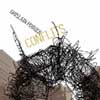 Intr_version continues its winning streak with the fourth release fromunclassifiable French-Canadian maverick Ghislain Poirier, showing himmoving more towards a pure hip-hop sound, while keeping a foot firmlyplaced in the minimal, beautifully melancholic electronica that filledearlier releases like his 12k debut. Conflicts,however, is more a product of contemporary politics than any logicalprogression for the artist himself. Of the twelve tracks, only threeinclude rapping, but the entire disc bears urgent witness to a seriesof protests, struggles, and reconstructions. Poirier's music has neverbeen texturally complex, working instead through the juxtaposition of afew bold layers to create absorbing, cinematic spaces, but where beforea calm, meditative mood was achieved, Conflicts is anxious andpensive. On almost every song, thick, unadorned breaks take theforeground, often lacking more than one or two accompanying layers.Poirier's sonic palette has taken a turn towards grittier, more tactilesounds, like groaning feedback and plodding double bass. The hollowresonance of a plucked bass-note could represent the whole of Conflicts,not thematically vacant, but a record that, on the contrary, suggeststhe bombed-out spaces of the industrial skeleton on its cover. Hooksand melodies emerge in fragmented form and feel barely afloat on thethin strains of stringed instruments and feedback whines that createthe rarely comforting backdrop of most tracks. The album's lyrics areoutwardly political, something obvious to even the non-French speaker,and Poirier's delivery is unique; half spit and half spoken, his wordsare as confrontational as they are musical. The most impressive partsof Conflicts, though, are the instrumentals covering the disc'ssecond half. Poirier has a thing for off-kilter beats that skip around,hitting and missing, but he uses them in a way that is never overkill,managing to keep focus on the physicality of the beat itself withoutslipping into self-parody. He also loves to send rhythms, and entiresongs, sliding arbitrarily into silence, only to bring them staggeringback out for a big finish, a habit made possible by the rich and oftenformless nature of his backgrounds. From a few layers of droningfeedback, Poirier is able to construct an elaborate cradle for therhythms that front each piece, creating music that sounds at times likethe high frequency squeal of Nurse with Wound's Soliloquy for Lilith,put to a skipping backbeat. If Steven Stapleton is really consideringhip-hop for his new direction as he claims to be, he might do worsethan check in on Poirier for some inspiration.
Intr_version continues its winning streak with the fourth release fromunclassifiable French-Canadian maverick Ghislain Poirier, showing himmoving more towards a pure hip-hop sound, while keeping a foot firmlyplaced in the minimal, beautifully melancholic electronica that filledearlier releases like his 12k debut. Conflicts,however, is more a product of contemporary politics than any logicalprogression for the artist himself. Of the twelve tracks, only threeinclude rapping, but the entire disc bears urgent witness to a seriesof protests, struggles, and reconstructions. Poirier's music has neverbeen texturally complex, working instead through the juxtaposition of afew bold layers to create absorbing, cinematic spaces, but where beforea calm, meditative mood was achieved, Conflicts is anxious andpensive. On almost every song, thick, unadorned breaks take theforeground, often lacking more than one or two accompanying layers.Poirier's sonic palette has taken a turn towards grittier, more tactilesounds, like groaning feedback and plodding double bass. The hollowresonance of a plucked bass-note could represent the whole of Conflicts,not thematically vacant, but a record that, on the contrary, suggeststhe bombed-out spaces of the industrial skeleton on its cover. Hooksand melodies emerge in fragmented form and feel barely afloat on thethin strains of stringed instruments and feedback whines that createthe rarely comforting backdrop of most tracks. The album's lyrics areoutwardly political, something obvious to even the non-French speaker,and Poirier's delivery is unique; half spit and half spoken, his wordsare as confrontational as they are musical. The most impressive partsof Conflicts, though, are the instrumentals covering the disc'ssecond half. Poirier has a thing for off-kilter beats that skip around,hitting and missing, but he uses them in a way that is never overkill,managing to keep focus on the physicality of the beat itself withoutslipping into self-parody. He also loves to send rhythms, and entiresongs, sliding arbitrarily into silence, only to bring them staggeringback out for a big finish, a habit made possible by the rich and oftenformless nature of his backgrounds. From a few layers of droningfeedback, Poirier is able to construct an elaborate cradle for therhythms that front each piece, creating music that sounds at times likethe high frequency squeal of Nurse with Wound's Soliloquy for Lilith,put to a skipping backbeat. If Steven Stapleton is really consideringhip-hop for his new direction as he claims to be, he might do worsethan check in on Poirier for some inspiration.samples:
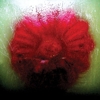 I sometimes like music that floats effortlessly from drone to post-rockknob twiddling to electronic beats of fancy, all over the same album,and still makes it seem normal, like it isn't driven by some mentalillness or other after all. Twelve's First Albumis exactly that kind of record, custom designed to infect the brain andnever let go, and for the most part it accomplishes this noble, perhapsimpossible, goal. In quite possibly the trippiest framework since theself-titled For Carnation album of three years ago, Twelve moveeffortlessly from genre to genre without so much as a breath of freshair. Six.By Seven's Chris Olley is the brainchild of the proceedings,bringing along vocalist Tee Dymond and Six.By's drummer Chris Davis tofill it all out. The album starts with a twenty-four guitar drone trackof stunning but simplistic beauty before settling in to the slow coreepic "Talkin About." Clocking in at over eleven minutes — though itdoesn't ever feel like it — the track starts off quiet enough buteventually soars in two glorious crescendos of guitars and programmedstrings. A lovely, earnest beginning; then, it all just goes awry, butnot in a bad way. "Travelin' Light" is funk bass electronic madnesswith a bit of drone mixed in that sets the album on its ear, and thepolyrhythmic wonder of it all takes over half the record. The slow rockreturns on "Never Let You Go" and "Now," but this record belongs to thegrind and grit of the programmed tracks. It's a complete record,there's nothing missing, and a combination of the styles might havemade it all implode. Flawed though this may seem, it serves the recordperfectly for a solid debut that previous work merely hinted at if atall.
I sometimes like music that floats effortlessly from drone to post-rockknob twiddling to electronic beats of fancy, all over the same album,and still makes it seem normal, like it isn't driven by some mentalillness or other after all. Twelve's First Albumis exactly that kind of record, custom designed to infect the brain andnever let go, and for the most part it accomplishes this noble, perhapsimpossible, goal. In quite possibly the trippiest framework since theself-titled For Carnation album of three years ago, Twelve moveeffortlessly from genre to genre without so much as a breath of freshair. Six.By Seven's Chris Olley is the brainchild of the proceedings,bringing along vocalist Tee Dymond and Six.By's drummer Chris Davis tofill it all out. The album starts with a twenty-four guitar drone trackof stunning but simplistic beauty before settling in to the slow coreepic "Talkin About." Clocking in at over eleven minutes — though itdoesn't ever feel like it — the track starts off quiet enough buteventually soars in two glorious crescendos of guitars and programmedstrings. A lovely, earnest beginning; then, it all just goes awry, butnot in a bad way. "Travelin' Light" is funk bass electronic madnesswith a bit of drone mixed in that sets the album on its ear, and thepolyrhythmic wonder of it all takes over half the record. The slow rockreturns on "Never Let You Go" and "Now," but this record belongs to thegrind and grit of the programmed tracks. It's a complete record,there's nothing missing, and a combination of the styles might havemade it all implode. Flawed though this may seem, it serves the recordperfectly for a solid debut that previous work merely hinted at if atall.samples:
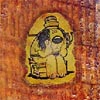 With a name dually inspired by Francois Truffaut's The 400 Blows and a sudden, tragic drop in seratonin levels, 400 Lonely Things is clouded in a nebulous haze of sadness, brought on by doubt, aggravated by melancholy. The beautifully packaged limited edition LP of the debut album offers no information on the instrumentation or personnel involved in its creation. The idea, I suppose, is to isolate the listener in the same way the artist imagines himself isolated.
With a name dually inspired by Francois Truffaut's The 400 Blows and a sudden, tragic drop in seratonin levels, 400 Lonely Things is clouded in a nebulous haze of sadness, brought on by doubt, aggravated by melancholy. The beautifully packaged limited edition LP of the debut album offers no information on the instrumentation or personnel involved in its creation. The idea, I suppose, is to isolate the listener in the same way the artist imagines himself isolated.
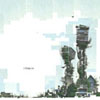 All the light-weight electronics and smeared melody runs make me thinkof the ocean pushing up against the beach this past year. All thesounds suggest a simple tinkering, something happening just under asheet of roaring noise that somehow stops roaring and goes into acocoon to emerge as a whisper. Children are running all over the place,too, and it's not that they're making a mess, but I'll be damned ifthey don't seem way more busy than they should be capable of.Everything's a little simplified on Pinaforeand that being so, I have a difficult time feeling anything butnostalgic when this is spinning. The sounds are piled one on anotherand it's very easy to capture every little second of music in my headand let it push its full effect on me. The record, I'm afraid to say,almost made me just a little sad. I couldn't help but think of theCalifornia beach and the way the water sounds when its crashing intorocks and the way, despite that incredible wall of sound, that thebirds, the wind, and the people's voices around me were crystal clear.I make it sound as if Illoin writes noise-inspired music, buteverything is very subtle: all the drums click and clack and sort ofstutter underneath pillows while bass melodies swindle their way out ofa little kid's toys. It makes me want to dance a little bit, but thatmelancholy is a strong presence. The lonly piano of "Pinafore" and theringing and delicate raindrops on "Darkwater" drag me under and intomemory and its a strong presence to be in the company of when musicmakes it so visceral. I was watching it snow outside while I listenedto this record, too, and it was a soft snow-fall. The music almostseemed to mimic the way the snow fell and was whipped about by thewind. This is a stark and simultaneously lush collection of songs thathas stayed in my player since I received it.
All the light-weight electronics and smeared melody runs make me thinkof the ocean pushing up against the beach this past year. All thesounds suggest a simple tinkering, something happening just under asheet of roaring noise that somehow stops roaring and goes into acocoon to emerge as a whisper. Children are running all over the place,too, and it's not that they're making a mess, but I'll be damned ifthey don't seem way more busy than they should be capable of.Everything's a little simplified on Pinaforeand that being so, I have a difficult time feeling anything butnostalgic when this is spinning. The sounds are piled one on anotherand it's very easy to capture every little second of music in my headand let it push its full effect on me. The record, I'm afraid to say,almost made me just a little sad. I couldn't help but think of theCalifornia beach and the way the water sounds when its crashing intorocks and the way, despite that incredible wall of sound, that thebirds, the wind, and the people's voices around me were crystal clear.I make it sound as if Illoin writes noise-inspired music, buteverything is very subtle: all the drums click and clack and sort ofstutter underneath pillows while bass melodies swindle their way out ofa little kid's toys. It makes me want to dance a little bit, but thatmelancholy is a strong presence. The lonly piano of "Pinafore" and theringing and delicate raindrops on "Darkwater" drag me under and intomemory and its a strong presence to be in the company of when musicmakes it so visceral. I was watching it snow outside while I listenedto this record, too, and it was a soft snow-fall. The music almostseemed to mimic the way the snow fell and was whipped about by thewind. This is a stark and simultaneously lush collection of songs thathas stayed in my player since I received it. The first release by the Chinese Stars is a no frills romp with moxy tospare, a post-punk garage tirade that refuses to relent, and a tooshort visit from a friend you miss only after he's been gone longenough to forget what you didn't like. At fourteen-and-a-half minutesand five tracks, it's just a taste, and some may see that as a goodthing. This is music for the mentally ill, made by the mentally ill,and every sloppy minute of it is another godsend. Former members of SixFinger Satellite and Arab on Radar make up the Stars, and their CD cutinto the shape of one of the implements with which they share theirname. Lyrics like "You could build a bone toilet with the calories thatroll off your shoulder" and "I was grew up in a glue factory/my teenageyears were less than satisfactory" pepper the release, yet Eric Paulsings "Now, I worry about you" as if everyone else has a problem buthe's fine. The ugly crunch of the guitar and the pounding drums — withcowbell that would make Christopher Walken proud in areas — do nothingbut feed this perversion, but at the end it's all in good fun. I couldnot resist tapping my foot, and though abrasive it may be as theguitars squeal to bleed the eardrums, this EP is jolly fun to listen toand rolls right along like it would run anything over if it got intheir way. It's a fantastic primer for what the band is capable of, andit serves as a warning in a way: these Chinese Stars are dangerous, andnot to be trifled with.
The first release by the Chinese Stars is a no frills romp with moxy tospare, a post-punk garage tirade that refuses to relent, and a tooshort visit from a friend you miss only after he's been gone longenough to forget what you didn't like. At fourteen-and-a-half minutesand five tracks, it's just a taste, and some may see that as a goodthing. This is music for the mentally ill, made by the mentally ill,and every sloppy minute of it is another godsend. Former members of SixFinger Satellite and Arab on Radar make up the Stars, and their CD cutinto the shape of one of the implements with which they share theirname. Lyrics like "You could build a bone toilet with the calories thatroll off your shoulder" and "I was grew up in a glue factory/my teenageyears were less than satisfactory" pepper the release, yet Eric Paulsings "Now, I worry about you" as if everyone else has a problem buthe's fine. The ugly crunch of the guitar and the pounding drums — withcowbell that would make Christopher Walken proud in areas — do nothingbut feed this perversion, but at the end it's all in good fun. I couldnot resist tapping my foot, and though abrasive it may be as theguitars squeal to bleed the eardrums, this EP is jolly fun to listen toand rolls right along like it would run anything over if it got intheir way. It's a fantastic primer for what the band is capable of, andit serves as a warning in a way: these Chinese Stars are dangerous, andnot to be trifled with. It seems like an eternity since the release of Suchy's third album, Entskidoo,easily one of my favorites from last year. The record felt like thefirst major statement from the German guitarist-turned-laptopper,beautifully representing his skills over two seamless sides, eachteeming with layers of pixilated guitar noise that coalesce to createsomething wholly other. Suchy makes psychedelia for the digital age, aremarkably streamlined combination of hypnotic, half-improvised guitarlines and an equally absorbing array of electronic sounds. His guitartalent is matched only by his ability to integrate it with the rest ofhis often busy, though never confused compositions. The sound ofSuchy?s guitar becomes automated rattle, static drone, windchime, eventhe wind itself, until enjoying it means slipping into a kind of trancestate, swaying at Suchy's whim. Calabi.Yau is less noisy andless colorful than its predecessor but is equally rich in both sonicdensity and hallucinatory power. Suchy keeps plenty of melody at hand,though here it is pushed further from the core of the songs, which relymore on shivering feedback and scattered plucking and tinkering toachieve their desired effects. When melody does enter, it comes with anaura of detachment, a hesitance to make too bold a stroke. Where Entskidoo was like a journey through the tropics or some mutant jungle, Calabiis colder and more spacious. Even "Ka-asam," the disc's most raucouslypsychedelic track, arrives through a background of weightless drones,floating in on choppy waveforms like transmissions of a distantsatellite. The new addition of Stephen Barnickel's percussioncontributes ominous gong-like roars to Suchy's frequently gorgeouspicked sections, and various clatter to the more abstract parts, addingtangible, or at least recognizable touches to the guitarist'sincreasingly bizarre soundscapes. I've always thought it a mystery whySuchy is so rarely grouped among other electronic or experimentalartists using guitars, like Fennesz or Christopher Willits. Though witheach new release, Suchy gives me the easy answer: he operates on acompletely elevated plain. The production value and nuance of thisrecord places it on par with any from the aforementioned musicians, butthe complexity of Suchy's arrangements, the emotional and illusionistdistance covered by each track, remains unmatched.
It seems like an eternity since the release of Suchy's third album, Entskidoo,easily one of my favorites from last year. The record felt like thefirst major statement from the German guitarist-turned-laptopper,beautifully representing his skills over two seamless sides, eachteeming with layers of pixilated guitar noise that coalesce to createsomething wholly other. Suchy makes psychedelia for the digital age, aremarkably streamlined combination of hypnotic, half-improvised guitarlines and an equally absorbing array of electronic sounds. His guitartalent is matched only by his ability to integrate it with the rest ofhis often busy, though never confused compositions. The sound ofSuchy?s guitar becomes automated rattle, static drone, windchime, eventhe wind itself, until enjoying it means slipping into a kind of trancestate, swaying at Suchy's whim. Calabi.Yau is less noisy andless colorful than its predecessor but is equally rich in both sonicdensity and hallucinatory power. Suchy keeps plenty of melody at hand,though here it is pushed further from the core of the songs, which relymore on shivering feedback and scattered plucking and tinkering toachieve their desired effects. When melody does enter, it comes with anaura of detachment, a hesitance to make too bold a stroke. Where Entskidoo was like a journey through the tropics or some mutant jungle, Calabiis colder and more spacious. Even "Ka-asam," the disc's most raucouslypsychedelic track, arrives through a background of weightless drones,floating in on choppy waveforms like transmissions of a distantsatellite. The new addition of Stephen Barnickel's percussioncontributes ominous gong-like roars to Suchy's frequently gorgeouspicked sections, and various clatter to the more abstract parts, addingtangible, or at least recognizable touches to the guitarist'sincreasingly bizarre soundscapes. I've always thought it a mystery whySuchy is so rarely grouped among other electronic or experimentalartists using guitars, like Fennesz or Christopher Willits. Though witheach new release, Suchy gives me the easy answer: he operates on acompletely elevated plain. The production value and nuance of thisrecord places it on par with any from the aforementioned musicians, butthe complexity of Suchy's arrangements, the emotional and illusionistdistance covered by each track, remains unmatched. Continuing the time-honored tradition of reissuing widely availableback albums instead of releasing new music, Current 93 present aremastered, repackaged and expanded 2CD re-release of 1991's Thunder Perfect Mind. In contrast to some recent, mostly pointless rehashes of the back catalog, TPMwas due for this treatment, as the original CD issue was poorlymastered. The volume was far too low and the mix lacked punch, inferiorto the hard-to-find LP edition. The bonus disc is comprised of TPM-era outtakes, alternate versions and live material. Nearly all of this material can also be found on Emblems: The Menstrual Years and Calling For Vanished Faces,so Current 93 collectors will find very little that is attractive aboutthis package, with the exception of the restored LP cover artwork andthe nifty foldout digipack. Of course, the music on Thunder Perfect Mind is nothing less than essential, the first entry in David Tibet's masterful three-album run that also included the classics Of Ruine or Some Blazing Starre and All The Pretty Little Horses. With TPM,David Tibet created his first highly personal tour de force, asprawling double album that finally gelled all of Tibet's myriadinfluences - esoteric, lyrical and musical - and represented the veryculmination of his promising, though uneven early career. Thunder Perfect Mindis that rare class of albums where every track is a highlight - thecrisp medieval balladry and bizarre Gnostic cosmology that comprise"The Descent of Long Satan and Babylon," the melancholic funeral dirgeof "A Song for Douglas After He's Dead," the atmospheric gloom of "ASadness Song" and the swirling, spectral psychedelia of "All The StarsAre Dead Now." The collaborations on TPM are among Current 93'sfinest: Jhon Balance's vocals on "Rosy Star Tears From Heaven" pushesthe track into the kind of Satanic fury previously only heard on Comus'First Utterance, and Bevis Frond's Nick Salomon contributes anelectrifying third-eye guitar track to the side-long prophetic Blakeanhallucinations of "Hitler as Kalki (SDM)." David Tibet and producerSteven Stapleton transform holophonic krautrocker Sand's skeletal "WhenThe May Rain Comes" into a masterpiece of phased Euro-folk, evoking thewet cobblestones of a half-remembered old-world Berlin. A true rarityin the Current 93 canon, the outtakes from TPM are every bit asgood as the album, especially "Maldoror Is Ded Ded Ded Ded" and "TheyReturn To Their Earth" - a pair of stunning tracks that build to afrighteningly cathartic climax. The re-mastering job is admirable,raising the volume and adding dimension to the high and lowfrequencies, without sacrificing the integrity of the original'sfidelity. This is exactly what I hope for when a favorite of mine isre-issued - a superbly realized package that deepens, rather thandilutes my conviction that the album is a classic.
Continuing the time-honored tradition of reissuing widely availableback albums instead of releasing new music, Current 93 present aremastered, repackaged and expanded 2CD re-release of 1991's Thunder Perfect Mind. In contrast to some recent, mostly pointless rehashes of the back catalog, TPMwas due for this treatment, as the original CD issue was poorlymastered. The volume was far too low and the mix lacked punch, inferiorto the hard-to-find LP edition. The bonus disc is comprised of TPM-era outtakes, alternate versions and live material. Nearly all of this material can also be found on Emblems: The Menstrual Years and Calling For Vanished Faces,so Current 93 collectors will find very little that is attractive aboutthis package, with the exception of the restored LP cover artwork andthe nifty foldout digipack. Of course, the music on Thunder Perfect Mind is nothing less than essential, the first entry in David Tibet's masterful three-album run that also included the classics Of Ruine or Some Blazing Starre and All The Pretty Little Horses. With TPM,David Tibet created his first highly personal tour de force, asprawling double album that finally gelled all of Tibet's myriadinfluences - esoteric, lyrical and musical - and represented the veryculmination of his promising, though uneven early career. Thunder Perfect Mindis that rare class of albums where every track is a highlight - thecrisp medieval balladry and bizarre Gnostic cosmology that comprise"The Descent of Long Satan and Babylon," the melancholic funeral dirgeof "A Song for Douglas After He's Dead," the atmospheric gloom of "ASadness Song" and the swirling, spectral psychedelia of "All The StarsAre Dead Now." The collaborations on TPM are among Current 93'sfinest: Jhon Balance's vocals on "Rosy Star Tears From Heaven" pushesthe track into the kind of Satanic fury previously only heard on Comus'First Utterance, and Bevis Frond's Nick Salomon contributes anelectrifying third-eye guitar track to the side-long prophetic Blakeanhallucinations of "Hitler as Kalki (SDM)." David Tibet and producerSteven Stapleton transform holophonic krautrocker Sand's skeletal "WhenThe May Rain Comes" into a masterpiece of phased Euro-folk, evoking thewet cobblestones of a half-remembered old-world Berlin. A true rarityin the Current 93 canon, the outtakes from TPM are every bit asgood as the album, especially "Maldoror Is Ded Ded Ded Ded" and "TheyReturn To Their Earth" - a pair of stunning tracks that build to afrighteningly cathartic climax. The re-mastering job is admirable,raising the volume and adding dimension to the high and lowfrequencies, without sacrificing the integrity of the original'sfidelity. This is exactly what I hope for when a favorite of mine isre-issued - a superbly realized package that deepens, rather thandilutes my conviction that the album is a classic.  Montreal-based future million-sellers Stars have the right formulaworking for them. The instrumental competance is flawless, theproduction is fantastic, and the sincerity is genuine, but I can't getover my polar gut feelings about the dichotomy of the two singers.Songs like "Elevator Love Letter," and "Look Up," with Amy Millantaking the lead vocal, are both ear-grabbingly pop-powerful andwistfully surreal to hold the attention, as well as her parts on songslike "Heart." These tunes alone make a strong, compelling case in favorof this record. However, most of the material in between, sung byTorquil Campbell are a bit too timid for my tastes. In almost allcases, the group executes a fine balance between guitars, violin, andboth electronic and organic percussion. The songs are undeniablyprepped for greatness, which doesn't render them completely wishy-washyor forgettable, but I'm only left with a feeling of mediocrity withclich? love songs that aren't challenging enough to make me keep comingback. Rest assured, however, that the true standout songs from here arepowerful enough to be forever immortalized to a small number of peoplein the form of handwritten mix tapes that come directly from the heart.
Montreal-based future million-sellers Stars have the right formulaworking for them. The instrumental competance is flawless, theproduction is fantastic, and the sincerity is genuine, but I can't getover my polar gut feelings about the dichotomy of the two singers.Songs like "Elevator Love Letter," and "Look Up," with Amy Millantaking the lead vocal, are both ear-grabbingly pop-powerful andwistfully surreal to hold the attention, as well as her parts on songslike "Heart." These tunes alone make a strong, compelling case in favorof this record. However, most of the material in between, sung byTorquil Campbell are a bit too timid for my tastes. In almost allcases, the group executes a fine balance between guitars, violin, andboth electronic and organic percussion. The songs are undeniablyprepped for greatness, which doesn't render them completely wishy-washyor forgettable, but I'm only left with a feeling of mediocrity withclich? love songs that aren't challenging enough to make me keep comingback. Rest assured, however, that the true standout songs from here arepowerful enough to be forever immortalized to a small number of peoplein the form of handwritten mix tapes that come directly from the heart.samples:
 This music could give a new meaning to the word "accessible." On one hand, Merge is an album constructed from Ikeda's 13-year-old "sound diary," music created to "reflect [his] everyday life," and, therefore, arguably more approachable than something based, say, around a chapter from Ulysses or the story of a mythical lady buying a stairway to heaven. Music from the diary of a living, breathing human is necessarily less demanding than music involving the imagist pile-ups of fictional or narrative songwriting. True, any piece of music will impose a kind of narrative simply by progressing in real time, and, I will admit that upon first listening to Merge, I found myself unconsciously trying to reconstruct the events which inspired such a cold, often unsettling backdrop.
This music could give a new meaning to the word "accessible." On one hand, Merge is an album constructed from Ikeda's 13-year-old "sound diary," music created to "reflect [his] everyday life," and, therefore, arguably more approachable than something based, say, around a chapter from Ulysses or the story of a mythical lady buying a stairway to heaven. Music from the diary of a living, breathing human is necessarily less demanding than music involving the imagist pile-ups of fictional or narrative songwriting. True, any piece of music will impose a kind of narrative simply by progressing in real time, and, I will admit that upon first listening to Merge, I found myself unconsciously trying to reconstruct the events which inspired such a cold, often unsettling backdrop.
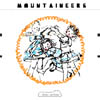 For me, the name Mountaineers conjures up images of a rustic tradition,as well as adventurousness and innovation on the frontier. On Messy Century,the band does position itself on a frontier, or boundary, and straddlesthe line, taking liberally from both sides. Their synthesis is acompelling one, exciting and reassuring. Their compositions give theimpression that there are dozens of styles, influences, and ideas eachfighting for center stage. This competition is ever present, as sampledbeats and electronic manipulation ebb and flow over light, bouncystrumming and sing-a-long vocals. The end result is not confused orunfocused, however. Mountaineers have a keen sense of when their nickedpercussion should hit, or whether their synthesizer lines should holdback or rise to a dizzying climax. With all the modernized electronicflourishes floating around, it is important to realize that the core ofthese songs is a humble acoustic folk sensibility that is delightfullyhook filled. When the band puts the emphasis on this aspect of theirsound, as on "I Gotta Sing," they do not suffer from any supposed lossof novelty. The song's bright vocals and memorable lyrics erupt in ajovial, smiling chorus. "UK Theatre" even brings a snappy whistle intothe mix of handclaps and pots and pans drumming, adding to the feelingthat this is a recording of some exuberant living room free for all. Onthe other end of the spectrum, there are tracks that revel in theirprocessed instrumentation and computerized blips. "Bom Bom" is repletewith punchy cascades of melody and blurry, obscured vocals. Though itseems light years away from the more straightforward songs on the disc,the start stop rhythms and attention to song craft refuse to allow thissong to become an exercise in murkiness or aimless experimentation.Mountaineers manage to make the otherwise sterile and slick sound cozy."Apart From This," another track that relies on electronics (though notas drastically as "Bom Bom,") is imbued with a warmth that emanatesfrom the heart of the song. It has a swagger and a swing to it. Thefinal track, "Silent Dues," is a subdued, elegiac piece that driftsalong with an introspective tenor. All throughout this disc, the bandproves themselves an extremely versatile outfit, able to incorporateany number of differing thoughts and sounds into a pleasing pastiche.
For me, the name Mountaineers conjures up images of a rustic tradition,as well as adventurousness and innovation on the frontier. On Messy Century,the band does position itself on a frontier, or boundary, and straddlesthe line, taking liberally from both sides. Their synthesis is acompelling one, exciting and reassuring. Their compositions give theimpression that there are dozens of styles, influences, and ideas eachfighting for center stage. This competition is ever present, as sampledbeats and electronic manipulation ebb and flow over light, bouncystrumming and sing-a-long vocals. The end result is not confused orunfocused, however. Mountaineers have a keen sense of when their nickedpercussion should hit, or whether their synthesizer lines should holdback or rise to a dizzying climax. With all the modernized electronicflourishes floating around, it is important to realize that the core ofthese songs is a humble acoustic folk sensibility that is delightfullyhook filled. When the band puts the emphasis on this aspect of theirsound, as on "I Gotta Sing," they do not suffer from any supposed lossof novelty. The song's bright vocals and memorable lyrics erupt in ajovial, smiling chorus. "UK Theatre" even brings a snappy whistle intothe mix of handclaps and pots and pans drumming, adding to the feelingthat this is a recording of some exuberant living room free for all. Onthe other end of the spectrum, there are tracks that revel in theirprocessed instrumentation and computerized blips. "Bom Bom" is repletewith punchy cascades of melody and blurry, obscured vocals. Though itseems light years away from the more straightforward songs on the disc,the start stop rhythms and attention to song craft refuse to allow thissong to become an exercise in murkiness or aimless experimentation.Mountaineers manage to make the otherwise sterile and slick sound cozy."Apart From This," another track that relies on electronics (though notas drastically as "Bom Bom,") is imbued with a warmth that emanatesfrom the heart of the song. It has a swagger and a swing to it. Thefinal track, "Silent Dues," is a subdued, elegiac piece that driftsalong with an introspective tenor. All throughout this disc, the bandproves themselves an extremely versatile outfit, able to incorporateany number of differing thoughts and sounds into a pleasing pastiche.samples:
 As the label's first release, Hybrid Electric unveil the second albumby critically praised electronic/acoustic artist Matt Shaw, also knownas Tex La Homa. Where his last full-length was a virtual snore, withmonotone delivery and static soundscapes, this sophomore effort is areal breath of fresh air. Shaw has honed his sound, concentrating onthe atmospherics and pop sensibilities that shined through before, andeliminated the repitition and flat presentations to produce aconsistent mood without feigning self importance. Dirty electronicpercussion gurgles from the speakers to start the set, as delicateelectric guitar entrances and invites. When Shaw finally opens hismouth halfway through the track, his vocals are treated so much thatthe words are often hard to make out, but it makes little differencefor a simple track of this beauty. Later, on "In the Clouds," thecloseness of the first track is replaced by pure isolation, but themusic almost makes it sound welcome. This is a tribute to a love thatdeserves better, and Shaw sells it well, and I can't get over how muchhis voice has improved and how good these songs are compared to thefirst album. Even when the vaguely country influence makes anappearance on "Paper Car," it's completely reinvented and there's nocause for concern. (Or, as Shaw puts it "I am not your enemy." Agreed.)If his debut was unabiding sadness, If Just Todayis the exact opposite, as every track has a driving energy and apositive outlook and feel. "Either Way" is the album's climax, asix-minute-plus mix of all the styles on the record that still blows meaway. This is my pick for most improved artist this year, and this is aperfect record to pull out come summer or autumn evenings when you'rewinding down.
As the label's first release, Hybrid Electric unveil the second albumby critically praised electronic/acoustic artist Matt Shaw, also knownas Tex La Homa. Where his last full-length was a virtual snore, withmonotone delivery and static soundscapes, this sophomore effort is areal breath of fresh air. Shaw has honed his sound, concentrating onthe atmospherics and pop sensibilities that shined through before, andeliminated the repitition and flat presentations to produce aconsistent mood without feigning self importance. Dirty electronicpercussion gurgles from the speakers to start the set, as delicateelectric guitar entrances and invites. When Shaw finally opens hismouth halfway through the track, his vocals are treated so much thatthe words are often hard to make out, but it makes little differencefor a simple track of this beauty. Later, on "In the Clouds," thecloseness of the first track is replaced by pure isolation, but themusic almost makes it sound welcome. This is a tribute to a love thatdeserves better, and Shaw sells it well, and I can't get over how muchhis voice has improved and how good these songs are compared to thefirst album. Even when the vaguely country influence makes anappearance on "Paper Car," it's completely reinvented and there's nocause for concern. (Or, as Shaw puts it "I am not your enemy." Agreed.)If his debut was unabiding sadness, If Just Todayis the exact opposite, as every track has a driving energy and apositive outlook and feel. "Either Way" is the album's climax, asix-minute-plus mix of all the styles on the record that still blows meaway. This is my pick for most improved artist this year, and this is aperfect record to pull out come summer or autumn evenings when you'rewinding down.samples:
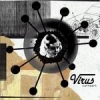 Norway's Virus want to create a sort of free-form heaviness thatchanges your perception of what to expect from the hardcore metal genrein an effort to promote versatility and variation. What they ended upwith is a lite version of adrenaline-fueled pound and screech with across between Mike Patton and Serj Tankian on vocals. Which ultimatelymeans sometimes the vocals are on key, sometimes nowhere near, and itsounds like that may or may not have been a conscious choice; but themusic is stable, engaging even, with sadly very little change from onetrack to the next. Virus try hard to make the songs blend together intoa congruous whole, with tracks fading into each other and combiningelements, but the music is so derivative and the vocal performancesoften so horrendous that it's hard to find anything really to latch onto. Incidentally, where other import artists have stayed with theirnative tongue or tried at some deeper meaning in the translation, Virusemote through lyrics that are almost incomprehensible, with talk ofscreaming insects and "I went smilingly like a classic obsession"topping the list of sub par nonsense. This, unfortunately, also meansthat they are not all that different from any other Norwegian hardcoreband that tries its cards on this side of the pond. Carheartis a valiant effort, though, and Virus are pouring their hearts allover this record. It just doesn't amount to much that hasn't been triedhere before.
Norway's Virus want to create a sort of free-form heaviness thatchanges your perception of what to expect from the hardcore metal genrein an effort to promote versatility and variation. What they ended upwith is a lite version of adrenaline-fueled pound and screech with across between Mike Patton and Serj Tankian on vocals. Which ultimatelymeans sometimes the vocals are on key, sometimes nowhere near, and itsounds like that may or may not have been a conscious choice; but themusic is stable, engaging even, with sadly very little change from onetrack to the next. Virus try hard to make the songs blend together intoa congruous whole, with tracks fading into each other and combiningelements, but the music is so derivative and the vocal performancesoften so horrendous that it's hard to find anything really to latch onto. Incidentally, where other import artists have stayed with theirnative tongue or tried at some deeper meaning in the translation, Virusemote through lyrics that are almost incomprehensible, with talk ofscreaming insects and "I went smilingly like a classic obsession"topping the list of sub par nonsense. This, unfortunately, also meansthat they are not all that different from any other Norwegian hardcoreband that tries its cards on this side of the pond. Carheartis a valiant effort, though, and Virus are pouring their hearts allover this record. It just doesn't amount to much that hasn't been triedhere before.samples:



